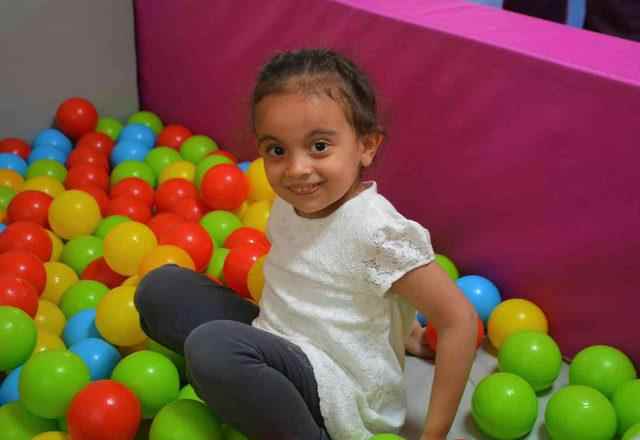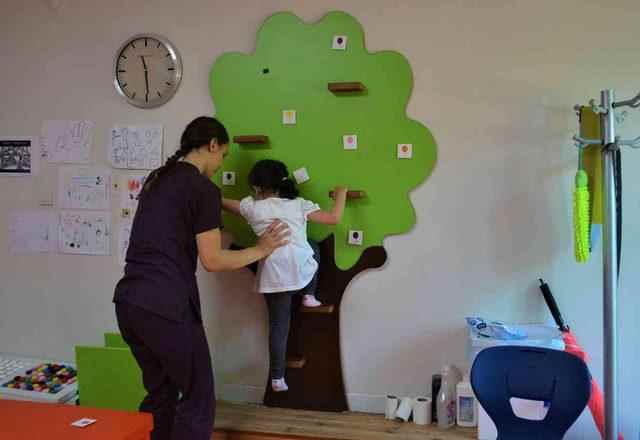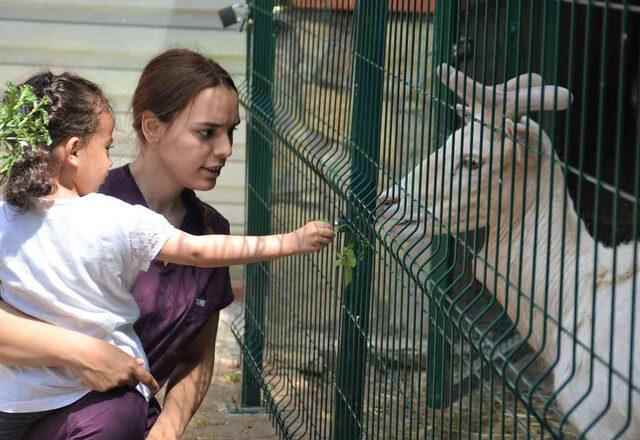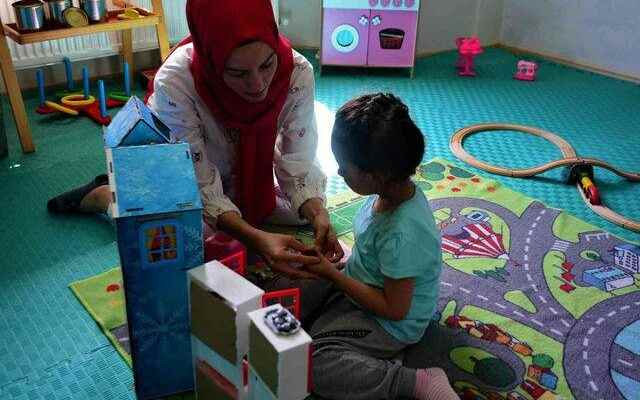The Kıranlı family realized that their little girl could not do the movements appropriate for her age. They took Nisa Kıranlı, who was 9 months old, to the doctor because she had fallen from the stairs. The Kıranlı family, who learned that their daughter had autism during the tests at the hospital, began to look for appropriate treatment and education methods for Nisa. Nisa, who started to receive trainings such as play therapy and sensory therapy, said goodbye to autism at the age of 4 after interacting with animals and nature. Father Erdem Kıranlı said, “I cannot tell you what a pleasure it is to hear from 3-4 doctors that we have beaten autism. We had a real problem sitting inside of us. We solved that problem,” he said.
WE GOT SUPPORT OF PSYCHOLOGIST
Expressing that Nisa was afraid to even make eye contact with her at first, father Erdem Kıranlı said, “We had an accident when Nisa was 9 months old. The boy fell down the stairs. We had some troubles and then Nisa couldn’t speak. When we came here, Nisa had a speech disorder and could not express herself. He couldn’t tell his needs and he couldn’t meet them. We got psychologist support. The psychologist told us to get a report. After the report, we searched the internet for rehabilitation centers that were good and found this place. We told our troubles and they told us their solutions. We met on a common ground and started walking together. Nisa was afraid to make eye contact with me, she was afraid to come near me. Even though I was his father, he could not approach me. She was screaming when a guest came to the house. Let’s say the simplest; He couldn’t ask for water and food. He was an autistic individual. Already when we went, he was diagnosed with autism himself. After that, we started training here,” he said.
BY THE TEST RESULT, WE LEARNED THAT WE OVERCOME AUTISM

Kıranlı said that the trainings really worked and that they did not have autism in their lives anymore and said, “Changes started in the first 3 months. He began not to shy away from people. Then he began to express himself. In the last 6 months, Nisa has started behaving completely normal. Then when he got sick we took him to a doctor, the emergency medical technician said, ‘Are you sure you have autism?’ said. We said he had the report and we were sure. They said, ‘We don’t think he has autism. We also put Nisa to tests in some institutions that provide special education. As a result of the last test we took, we learned that we defeated autism. We learned that Nisa does not have autism anymore, she only has a developmental delay, and that she can reach her own level in 1-2 years. I can’t tell you what a pleasure it is to hear that we have beaten autism from 3-4 doctors. We had a real problem sitting inside of us. We solved that problem. We don’t have that problem right now, we’re just thinking about how we can develop our child better. The issue we have overcome is a very difficult one indeed. All families that come here have a common problem. Everyone’s fear is this; ‘I will die in the future, what will happen to my child?’ fear. Because that child will not survive. In order for him to survive, we need to pay attention to such matters here. First, families will learn to break their own taboos and come here and receive education here. We are lucky to have chosen a good place. We solved it in 6 months, we solved our problem. “We don’t have autism in our lives anymore,” he said.
INTERACTION INCREASED OVER TIME

Nisa’s play therapist, psychologist Busenur Karakuzu, said, “When we first started with Nisa, our sustainability was very short. Our symbolic playing skill and variety of games were non-existent. Most importantly, we couldn’t play. He had an interest in certain toys, I couldn’t get him from dolls. I couldn’t point it to another toy. Obviously, our lesson proceeded as he wanted. Afterwards, we had a very good interaction. He started to communicate with me verbally, our eye contact increased. Most importantly, our symbolic game skill has increased. Now we are creating, diversifying and maintaining a game very well. He no longer directs me, he wants me to direct him” and explained the process.
OUR ADVANTAGE WAS HUGE BECAUSE I WAS LITTLE

Stating that they have made significant progress since the day they started the therapy, Karakuzu said, “Because Nisa was young, our advantage was huge. We can say that this is a disorder that can be seen in every child. But we have made better progress with early intervention. Between breaks, Nisa usually spent time with her mother by the animals. I could see him giving something to the animals or he was constantly waving to the deer. She even reminded me when I forgot about it. ‘Shouldn’t we greet the deer?’ she was saying she. She immediately went and said hi to the deer because there were deer on the way to our classroom. Or when the peacock stretched its wings, he would immediately show it to me. But it did not do this at all in the first processes. He was even afraid of them. He covered his ears when they made noise. There are none at the moment. It’s in pretty good shape,” she said.
